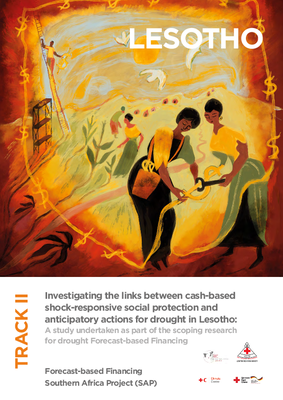Investigating the links between cash-based shock-responsive social protection and anticipatory actions for drought in Lesotho
Drought in Lesotho is one of the most recurrent climate hazards that continues to affect lives and livelihoods, with severe impacts on the economy. Given Lesotho’s high vulnerability to climate change, social protection programmes and their delivery systems could be important tools to build in emergency procedures and mechanisms to be able to respond flexibly and quickly to shocks. This study has been undertaken to understand the role of existing social protection (SP) programmes in the country in mitigating drought impacts and to scope the feasibility of such programmes for taking anticipatory action. The study analyzed which programmes have been used in the past for shock responses and which have the potential to be used for future drought shocks. The study follows a qualitative approach of research, with a combination of primary data collected through interviews and focused group discussion, and secondary data collected through extensive desk reviews.

Resource Type
PDF, 1.43 MB
Year
2021
Country
Lesotho
Region
Africa
Content Type
Feasibility Study
Theme
Social Protection
Hazard
Drought

